Keeping your fleet of vehicles in top-notch condition is essential for the success and efficiency of your business. Whether you own a small delivery service or manage a large transportation company, regular maintenance tasks should always be noticed. These crucial tasks are necessary to avoid costly breakdowns, decreased performance, and even potential safety hazards on the road. So, buckle up and join us as we explore the essential fleet maintenance tasks that you can’t afford to ignore. Ford Mobile Fleet Service is known for providing top-notch fleet maintenance services to help keep your vehicles running smoothly. From oil changes to brake inspections, we’ve covered you with practical tips to keep your fleet running smoothly and safely.
Regular Oil Changes
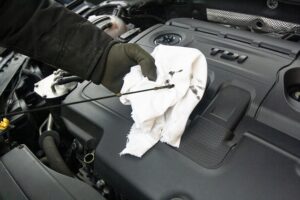 Regular oil changes are like fresh air for your fleet vehicles. They play a vital role in maintaining the health and longevity of the engine. Engine oil lubricates, cools, and cleans various components, ensuring optimal performance. Over time, however, oil can become contaminated with dirt particles and sludge, leading to increased friction and wear. Sticking to a regular oil change schedule is crucial to prevent any potential damage or breakdowns. The frequency will depend on vehicle type, driving conditions, and manufacturer recommendations.
Regular oil changes are like fresh air for your fleet vehicles. They play a vital role in maintaining the health and longevity of the engine. Engine oil lubricates, cools, and cleans various components, ensuring optimal performance. Over time, however, oil can become contaminated with dirt particles and sludge, leading to increased friction and wear. Sticking to a regular oil change schedule is crucial to prevent any potential damage or breakdowns. The frequency will depend on vehicle type, driving conditions, and manufacturer recommendations.
Fluid Checks
Regularly checking and maintaining the fluid levels in your fleet vehicles is essential for their overall performance and longevity. Neglecting this vital task can lead to costly repairs down the line and even potential breakdowns on the road. One of the most critical fluids to monitor is engine oil. It lubricates crucial components, reduces friction, and prevents excessive wear. Regular oil changes are necessary for dirt particles to accumulate, causing damage to your engine over time. In addition to engine oil, other fluids that need regular checks include transmission fluid, brake fluid, coolant/antifreeze, power steering fluid, and windshield washer fluid.
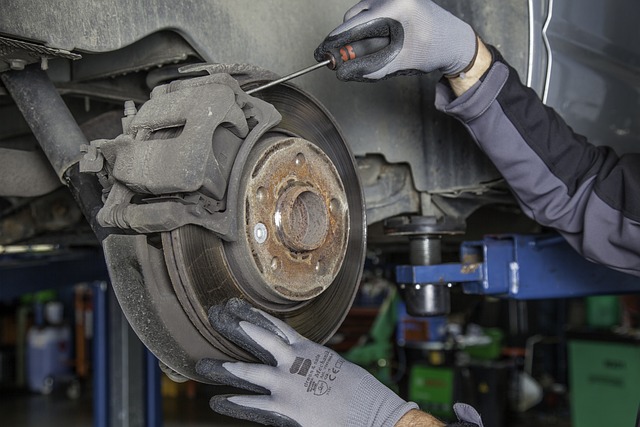
Brake Inspections
Your vehicle’s brakes are crucial for safe driving. Regular brake inspections can help prevent accidents and ensure optimal performance. A qualified technician will check the brake pads, rotors, callipers, and lines for any signs of wear or damage during a brake inspection. A critical aspect of brake maintenance is checking the thickness of the brake pads. Over time, these pads wear down due to friction with the rotors. It can affect your vehicle’s stopping power and increase braking distances if they become too thin. The condition of the rotors is also essential to consider during an inspection.
Tire Maintenance
Tire maintenance is a crucial aspect of fleet maintenance that should always be addressed. After all, the tyres are what keep your vehicle connected to the road and ensure safe and smooth journeys. Refrain from maintaining tire maintenance can lead to decreased fuel efficiency, poor handling, increased risk of accidents, and costly repairs. Regularly checking tire pressure is one of the most important aspects of tire maintenance. Proper inflation not only extends the life of your tires but also improves fuel economy.
Lighting and Electrical System Checks
 When it comes to fleet maintenance, one area that should never be overlooked is the lighting and electrical system. Properly functioning lights and electrical components are essential for safe driving and ensuring compliance with road regulations. Regular checks of your fleet’s lighting system can help identify any burnt-out bulbs or damaged wiring that may hinder visibility on the road. This includes headlights, taillights, brake lights, turn signals, and even interior cabin lights. A quick inspection can go a long way in preventing accidents caused by poor visibility. In addition to inspecting the lights themselves, it is crucial to check the electrical connections and wiring that power them.
When it comes to fleet maintenance, one area that should never be overlooked is the lighting and electrical system. Properly functioning lights and electrical components are essential for safe driving and ensuring compliance with road regulations. Regular checks of your fleet’s lighting system can help identify any burnt-out bulbs or damaged wiring that may hinder visibility on the road. This includes headlights, taillights, brake lights, turn signals, and even interior cabin lights. A quick inspection can go a long way in preventing accidents caused by poor visibility. In addition to inspecting the lights themselves, it is crucial to check the electrical connections and wiring that power them.
So, pay attention to these essential fleet maintenance tasks. Stay on top of them to keep your vehicles running smoothly, reduce breakdowns or accidents caused by neglected components, and maintain a reliable fleet that meets all safety standards. By prioritizing regular upkeep for each vehicle in your fleet, you’ll ensure smooth operations …

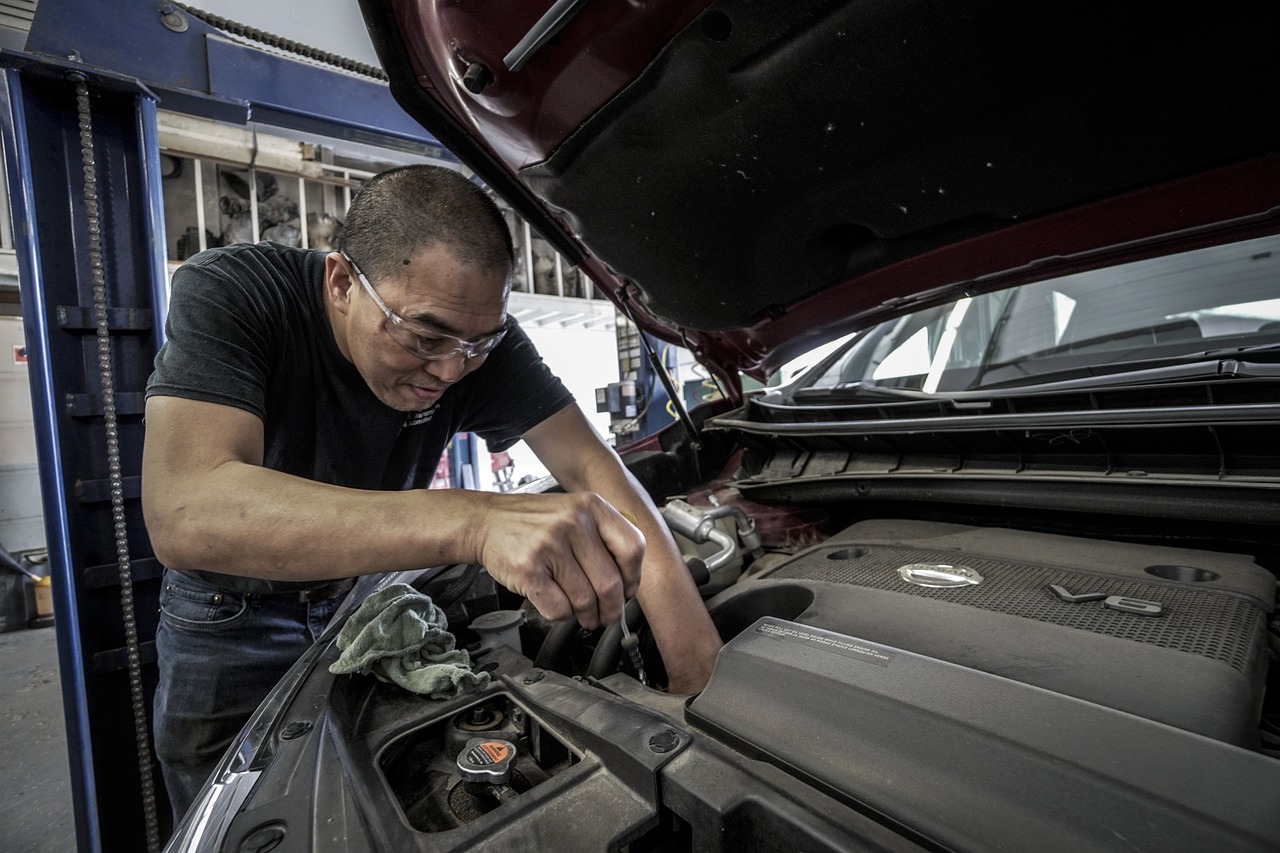

 The Acura TLX is a sleek and stylish luxury sedan that won’t cost you an arm and a leg. This car has features, including a spacious and comfortable interior, a smooth and powerful engine, and a long list of advanced technologies. The base model starts at just under $40,000 and comes standard with a 2.0-liter four-cylinder engine that produces 272 horsepower. The good news is that most car dealerships, like the
The Acura TLX is a sleek and stylish luxury sedan that won’t cost you an arm and a leg. This car has features, including a spacious and comfortable interior, a smooth and powerful engine, and a long list of advanced technologies. The base model starts at just under $40,000 and comes standard with a 2.0-liter four-cylinder engine that produces 272 horsepower. The good news is that most car dealerships, like the  The Audi A4 is a luxurious and well-appointed compact car that offers a high-quality driving experience. The base model starts at just under $44,000 and comes with a 2.0-liter four-cylinder engine that produces 248 horsepower. The A4 also comes with Audi’s latest infotainment system, which is easy to use and comes with Apple CarPlay and Android Auto. Although the A4 doesn’t come with as many advanced safety features as the other cars on this list, it comes with a rearview camera, automatic emergency braking, and lane departure warning. Luxury cars don’t have to be out of reach. The Acura TLX, BMW 3 Series, and Audi A4 are affordable luxury cars with a high-quality driving experience and a long list of advanced features.
The Audi A4 is a luxurious and well-appointed compact car that offers a high-quality driving experience. The base model starts at just under $44,000 and comes with a 2.0-liter four-cylinder engine that produces 248 horsepower. The A4 also comes with Audi’s latest infotainment system, which is easy to use and comes with Apple CarPlay and Android Auto. Although the A4 doesn’t come with as many advanced safety features as the other cars on this list, it comes with a rearview camera, automatic emergency braking, and lane departure warning. Luxury cars don’t have to be out of reach. The Acura TLX, BMW 3 Series, and Audi A4 are affordable luxury cars with a high-quality driving experience and a long list of advanced features.

 Finally, it would help if you ensured the car was prepared for sale. This includes cleaning it inside and out, making necessary repairs, and removing any rust. If you take the time to do these things, you will likely find a buyer willing to pay a fair price for your car. In addition, a clean and well-maintained car will be easier to sell than one in poor condition. Selling a junk car can be a great way to make some extra cash, but there are a few key things you need to keep in mind before you sell. Transportation costs, removal of components, determining a fair price, and preparing the vehicle for sale are all important factors to consider.…
Finally, it would help if you ensured the car was prepared for sale. This includes cleaning it inside and out, making necessary repairs, and removing any rust. If you take the time to do these things, you will likely find a buyer willing to pay a fair price for your car. In addition, a clean and well-maintained car will be easier to sell than one in poor condition. Selling a junk car can be a great way to make some extra cash, but there are a few key things you need to keep in mind before you sell. Transportation costs, removal of components, determining a fair price, and preparing the vehicle for sale are all important factors to consider.…
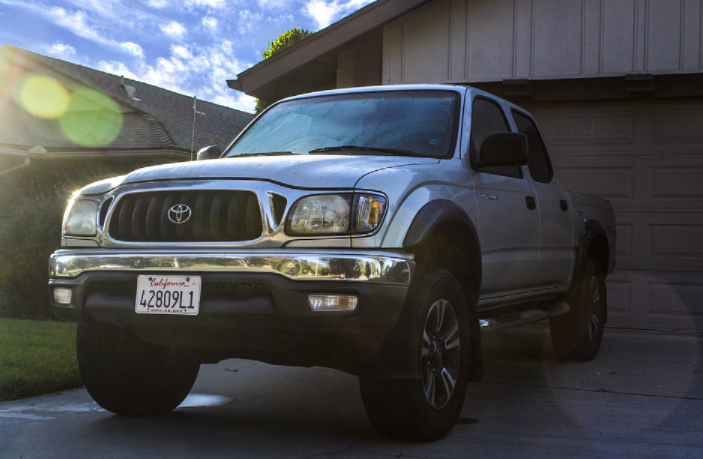
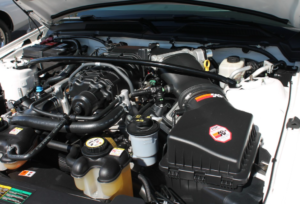 You’ve had a look, and now it’s time to try it out. As you drive, get out on the road and listen to how the car performs. Evaluate your heating and air conditioning – do this at the extreme ends of this spectrum, especially air conditioning. Ensure the air purifier is producing fresh air and listening for the air conditioning compressor to turn on. Check your furnace’s fan motor: run it in all gears and listen for sounds. Smell the air coming out of the furnace vents: sometimes bugs can get trapped in the fan, causing loud noises and unpleasant smells.
You’ve had a look, and now it’s time to try it out. As you drive, get out on the road and listen to how the car performs. Evaluate your heating and air conditioning – do this at the extreme ends of this spectrum, especially air conditioning. Ensure the air purifier is producing fresh air and listening for the air conditioning compressor to turn on. Check your furnace’s fan motor: run it in all gears and listen for sounds. Smell the air coming out of the furnace vents: sometimes bugs can get trapped in the fan, causing loud noises and unpleasant smells.